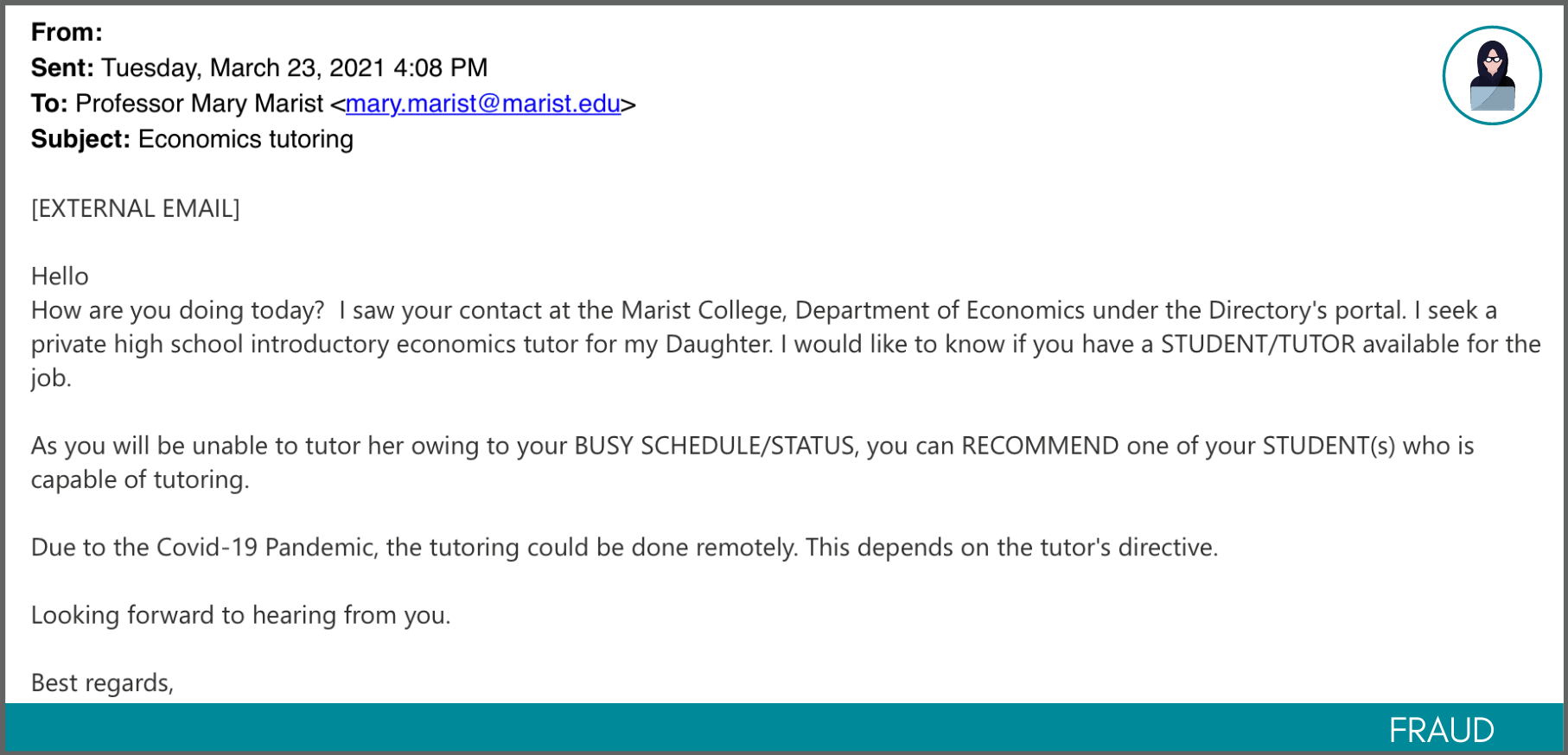-
About
- Friday, May 17, 6 p.m.
- Saturday, May 18, 11 a.m.
Commencement
Celebrating the Class of 2024
About
-
Academics
- Friday, May 17, 6 p.m.
- Saturday, May 18, 11 a.m.
Commencement
Celebrating the Class of 2024
Academics
-
Admission & Financial Aid
- Friday, May 17, 6 p.m.
- Saturday, May 18, 11 a.m.
Commencement
Celebrating the Class of 2024
Admission & Financial Aid
-
Student Life
- Friday, May 17, 6 p.m.
- Saturday, May 18, 11 a.m.
Commencement
Celebrating the Class of 2024
Student Life
- Athletics
An image of a letter being caught by a fishing pole with the text "Gone Phishing"

Why this looks valid
- Unsolicited job offers directed at college students are common, especially for tutoring services
Why this is fraud
- Awkward grammar and sentence construction are often indicators of malicious emails
- Responding to this email leads to the collection of personal information
- Additional interaction with the sender leads to a check fraud scam
Additional notes
- As the spring semester comes to a close, the frequency of fraudulent employment offers will increase. Cyber criminals know our academic schedule and take advantage of the fact that students are looking for summer employment
- Are you a Marist student looking for a job? Contact the right experts who can help you at the Center for Career Services: https://www.marist.edu/academic-resources/career-services
- Fraudulent job offers are extremely common. For more information, see https://www.bbb.org/article/news-releases/20710-scam-alert-employment-scams-target-college-students
- The FTC has additional information about how these scams work. The sender will mail a check and ask the recipient to send back the difference in the service cost through a wire transfer. The check will be fraudulent, but by the time your bank figures it out you will be out a few hundred (or thousand!) dollars and it is likely those funds will never be recovered: https://www.consumer.ftc.gov/articles/job-scams
- A little paranoia goes a long way! Be suspicious of any email messages similar to this one.
